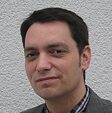Daniel Schulz
Wir waren wie Brüder
[We Were Like Brothers]
- Hanser Berlin
- Berlin 2022
- ISBN 978-3-446-27107-4
- 288 Pages
- Publisher’s contact details
Published in Italian with a grant from Litrix.de.
Sample translations
A Climate of Hardship
A lurking suspicion that the novel is merely filler, a puffed-up version of his reportage, soon proves unfounded, as it’s immediately clear that this is an author with a literary perspective, with a literary language all his own – a writer with a sense of narrative flow and dramatic tension. “I got my first Nazi.” This is the novel’s opening line. The narrator, now 20 years old, sits on a train in Berlin. Another passenger, a neo-Nazi judging by his outfit, has just found a potential victim when he spots a third passenger with long hair, glasses and fleece jacket, setting off his “hippie sensor.” But the evening ends unexpectedly, with the skinhead bleeding on the floor and the first-person narrator being bundled off to the police. End of exposition, flashback to 1989 when the East German state was collapsing and many new things were in the offing. The ten-year-old protagonist is living with his parents in a fictitious small town in Brandenburg where he has a good eye for change, before and after.
A reader might be forgiven for thinking he has seen enough news reports and heard enough eyewitness accounts to understand how the structures of radical rightwing violence were allowed to develop unchecked in the East. But Schulz’s study of a certain social environment over the course of eleven years is not just a gripping read, it also has something to tell us. The neo-Nazis thugs – they didn’t just land like UFOs in the backwaters of eastern Germany, they grew organically, as it were, out of a mixture of hopelessness and opportunism. Daniel Schulz depicts in a microcosmos a large-scale and comprehensive process of social transformation. A strange cosmos it is in which the disparate songs of Matthias Reim and Böhsen Onkelz are equally valid. A fitting image for the notion that good and evil cannot be neatly separated.
This social climate rapidly transforms when it becomes increasingly apparent that the grandiose promises of reunification, the “flourishing landscapes” just around the corner, were at best a massive delusion. A once working population sinks into depression or undergoes retraining, which in a former workers’ state is tantamount to a loss of identity. Hardship only grows, along with xenophobia and a propensity to violence. Discos, swimming holes, refugee homes – there are no safe spaces anymore. The narrator, too, has to decide whom he is going to spend his time with, what he can talk about and which things he should keep to himself. He also needs to decide how he feels about his classmate Mariam, whose family comes from Georgia and who is fearless in the face of new (East) German realities.
The pressure, the psychological violence of the post-Wall era, Daniel Schulz once said in an interview, is more distressing in hindsight than any of the kicks and punches he took. “We Were Like Brothers” is not a historical novel, but it does show a number of continuities. The title is taken from a song by the West German band Böhse Onkelz, a band which later tried to distance itself from its radical rightwing past, unconvincingly. An Onkelz song, “Thanks for Nothing,” blares from the cassette player of a car radio at some point in Schulz’s novel, a song containing the following lyrics: “You don’t know where I come from / And even if you did / You don’t know how I feel / You don’t know what it means / To be me.” These are the identity politics of the 1990s, the rightwing extremist sort. And, sadly, it sounds like the world we live in.
Translated by David Burnett

By Christoph Schröder
Christoph Schröder, born 1973, lives and works as a freelance author and reviewer in Frankfurt am Main. Among others, he writes for ZEIT, Deutschlandfunk and SWR Culture.
Publisher's Summary
Daniel Schulz reveals the banality of right-wing violence after the Fall of the Berlin Wall through this story of a youth in provincial Brandenburg
He is ten years old when revolution erupts in the GDR. While many people around him long for freedom, he is afraid: of the imperialists and fascists his teachers warned him about. Of what is coming and of what he doesn’t know. A few years later, he is harassed by Neonazis because of his long hair. And yet he often hangs out with rightwing extremists because he feels safe with them. As safe as he feels when he’s with Mariam, whose family comes from Georgia and is afraid of nothing. But at some point he’ll have to decide whose side he is on.
We Were Like Brothers is a graphic evocation of the period directly following the Fall of the Berlin Wall - and an all-too relevant novel about the often banal origins of racism and rightwing violence.
(Text: Hanser Berlin)
